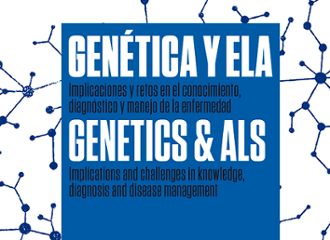Research projects
Start of main content
The function of the E3 ubiquitin ligase APC/C-Cdh1 in Fragile X Syndrome. Possible therapeutic application
18th national competition for scientific and technical research
Rare diseases

Senior Researcher : Ángeles Almeida Parra
Research Centre or Institution : Instituto de Investigación Biomédica de Salamanca (IBSAL). CSIC-Universidad de Salamanca.
Abstract
Fragile X chromosome syndrome (FXS) is the most frequent genetic cause of hereditary intellectual disability and autism spectrum disorders. FSX is caused by mutations in the FMR1 gene, leading to loss or reduction of RNA binding protein FMRP expression, which has been related to a greater or lesser severity of intellectual disability. Previously, we have described that the E3 ubiquitin ligase APC/C-Cdh1 plays a key role in the prenatal development of the cerebral cortex. Thus, genetic loss of Cdh1 causes neural precursor death, altering the balance between proliferation and neuronal differentiation, which culminates in microcephaly. The main objective of the project is to study the role of APC/C-Cdh1 in the regulation of FMRP levels in the developing brain and its impact in the FXS pathophysiology. Here, we demonstrate that FMRP is a target of APC/C-Cdh1. During neuronal differentiation, FMRP levels decrease as a result of the increase in the ligase activity. FMRP accumulates in neurons lacking Cdh1 (KOCdh1), causing neuronal apoptosis. Similarly, FMRP accumulates in brain areas of the KOCdh1 mice, which causes dendritic disruption, neurodegeneration and severe microcephaly. Moreover, we have identified a new mutation in Cdh1 (p. Asp187Gly) in humans, which causes microcephaly, epilepsy refractory to treatment and psychomotor retardation. These results confirm that Cdh1 is essential for the correct development of the CNS, since it regulates the establishment of neuronal connections and, with it, neuronal viability during brain development.
Therefore, we have identified the APC/C-Cdh1-FMRP signaling pathway as a key regulator of dendritic stability and synaptic plasticity during CNS postnatal development. Our results show that Cdh1-FMRP axis regulation is essential for brain development, which highlights the relevance of Cdh1 in neuropathologies, such as FXS.
Scientific Production |
|
|---|---|
| Magazine Articles | 3 |
| Communications at national conferences | 2 |
| Communications at international conferences | 2 |
-
 Activities related
Activities related
-
 Projects related
Projects related
-
 News related
News related
-
 Publications related
Publications related
 Activities related
Activities related
-
8
Apr
2024
Panel Discussion Mundo de las prótesis, los nuevos materiales, sus complicaciones y su futuro Madrid , Lunes, 8 de abril 2024. 17.00 horas
-
23
Apr
2024
Session Situación actual de las Enfermedades Raras en España Madrid, Martes, 23 de abril de 2024, 10:00 horas
-
9
May
2024
Conference Genes de mosca y genes humanos: una comparación Madrid, Jueves 09 de mayo de 2024, 19:00 horas
 Projects related
Projects related
- Phenotyping of animal models of rare diseases with visual disability 2020 Senior Researcher : Lluís Montoliu José Research Centre or Institution : Centro Nacional de Biotecnología (CNB). CSIC. Madrid
- The neuronal glycine transporter GlyT2 in herplexia: a glycinergic pathology of development 2020 Senior Researcher : Beatriz López Corcuera Research Centre or Institution : Centro de Biología Molecular Severo Ochoa. CSIC - UAM
- Serum markers in patients with congenital melanocytic nevi: clinicopathological and genetic correlation 2020 Senior Researcher : Pedro Redondo Bellón Research Centre or Institution : Clínica Universidad de Navarra. Pamplona
 News related
News related
-

-

Eric D. Green: “La genómica debe integrarse en la medicina convencional”
Published on 03/12/2021
 Publications related
Publications related
End of main content





